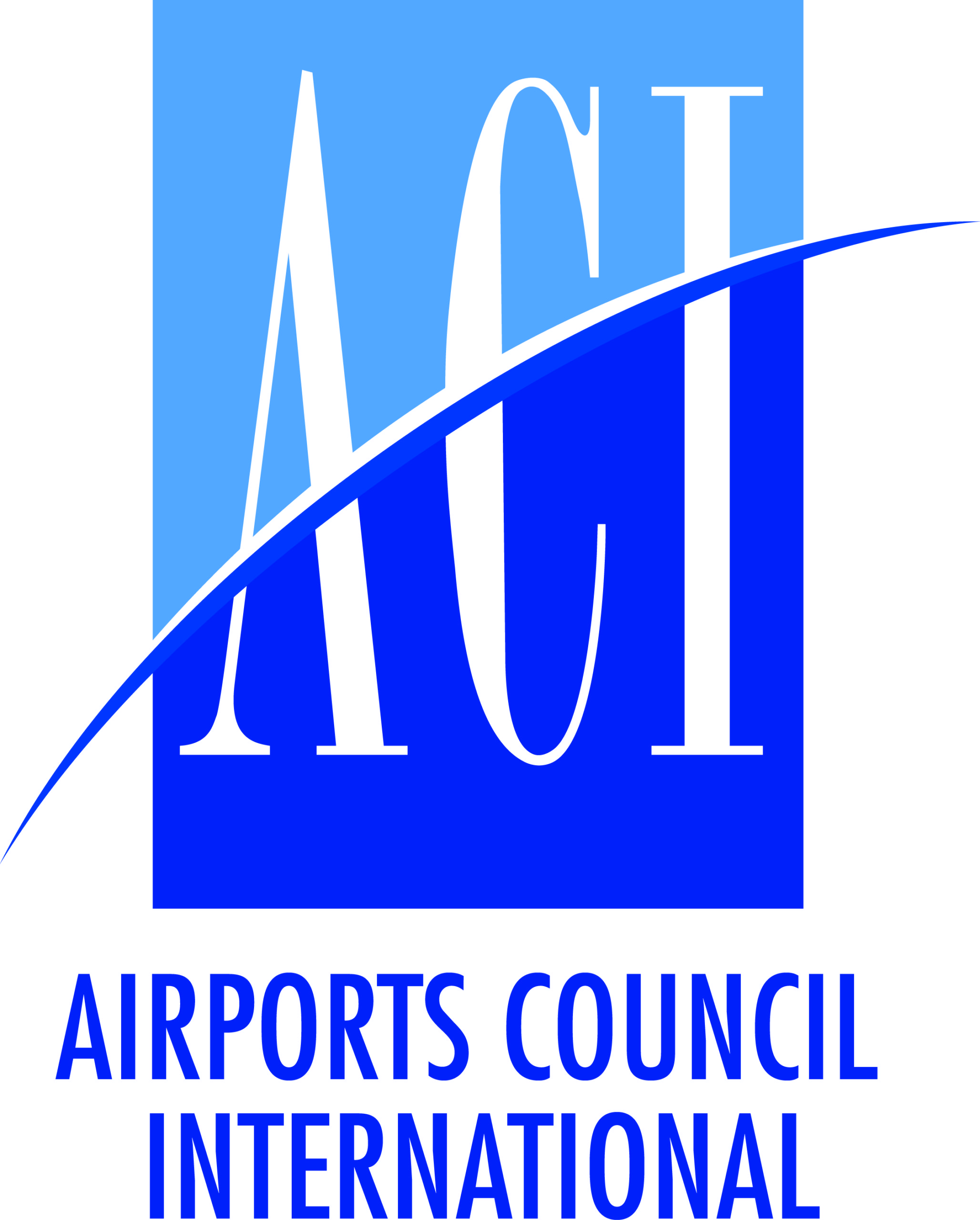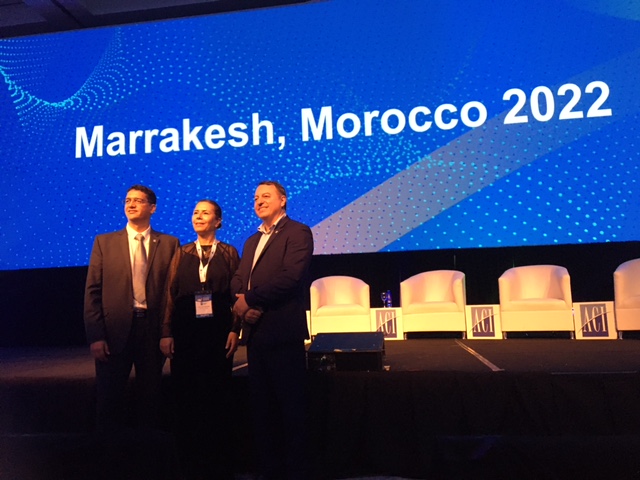By Luis Felipe de Oliveira*
Just as many countries around the world were beginning to loosen their border restrictions, reports of a newly detected coronavirus variant, named Omicron by the World Health Organization (WHO), sent many of those doors slamming shut again last week. While public health remains the utmost priority, we must use the experience we have gained over the last two years to move to a coordinated data-driven approach that finds alternatives to travel bans and border closures. We call upon governments to coordinate to implement pragmatic and risk-based measures based on science. Furthermore, we continue to urge countries to work closely with aviation stakeholders—including airports and airlines—prior to and during the implementation of travel measures to facilitate a more efficient application.
This situation is another reminder of the urgent need for countries to adopt interoperable digital health credentials for testing and vaccination that are mutually recognized across borders. This will allow countries to better manage their travel measures and adapt to the evolving health situation. Additionally, access to and the equitable distribution of COVID-19 vaccines is more important than ever—no one is safe until we are all safe and we have a collective responsibility to ensure that everyone who wants to get vaccinated can do so. We strongly support COVAX as the main mechanism for the distribution of WHO-authorized vaccines—we need to fulfill our collective global commitments of their equitable distribution worldwide.
Overcoming the pandemic and recovering from its devastating human, social, and economic impact can only be achieved through joint efforts. The entire aviation ecosystem needs to work together with governments to ensure a safe resumption of travel—one that can be sustained to enable the rebuilding of livelihoods, countries, and economies. Coordination and collaboration will be key to achieving this. Full travel bans and border closures are not ongoing solutions as variants emerge.
On a more positive note, it was a great pleasure to welcome over 400 delegates in person to Cancun last week for our 31st ACI LAC/World Annual General Assembly, Conference, and Exhibition under the theme “Reconnecting Aviation for a Sustainable Future.” I was delighted that we were able to bring together senior airport executives, government leaders, and industry stakeholders from around the world and provide an opportunity for our community to discuss the most pressing issues facing our industry. 17 out of 28 World Governing Board members were able to attend the conference in person, and a great number of CEOs and executives actively participated in the in-person sessions and social interactions.
This year’s conference explored several hot topics such as the current state of the industry, infrastructure planning and regulation, technology and innovation, and preparing airports for a net zero future, kicking off with the Leaders Panel.
I finally feel that I am fully integrated into the role of Director General. After 18 months I at last had the opportunity to sit with our members and the ACI regions face to face to discuss the challenges that lie ahead of our industry. I also had a chance to clarify ACI World’s role and to present some of its developments during the past year after a difficult start due to the impact from the pandemic.
To be honest, I was greatly energized by the physical presence of our members and partners, the personal interactions highlight how important they are to our human relations, business, and ability to construct bridges. In my State of the Industry opening address, I had for the first time the opportunity to share with them in person the airport perspective and how ACI World can support the whole aviation ecosystem. I was also pleased to be able to address some unfounded comments on airport charges and to present the hard facts.
We were also excited to present the Amadeus-ACI World Technology Innovation Awards during the Gala Dinner. The first edition of the awards recognized the many innovative solutions deployed by member airports as they keep up with a fast-changing environment and prioritize the changing needs of passengers—particularly as the sector rebuilds.
31st World Annual General Assembly outcomes
During the conference ACI World held its Annual General Assembly which among many items approved its new Chair and Vice Chair. Sheik Aimen bin Ahmed Al Hosni, CEO of Oman Airports Management Company, was approved as Chair and will begin his two-year term on 1 January 2022, succeeding Martin Eurnekian, CEO of Corporación América Airports and President of Aeropuertos Argentina 2000. Sheik Al Hosni has been ACI World Vice Chair since December 2018.
The Assembly also approved Ms. Candace S. McGraw, CEO of Cincinnati/Northern Kentucky International Airport, to succeed Sheik Al Hosni as Vice Chair on 1 January 2022, also for a two-year term, and thereafter expected to be appointed as Chair. Ms. McGraw is currently ACI World’s Treasurer and has been an active member of the ACI World Governing Board since 2018.
I extend a sincere thanks to Martin Eurnekian for his service as Chair. We have benefited greatly from his enormous experience and he will continue to as Immediate Past Chair in the coming years. I also welcome Aimen Al Hosni and Candace McGraw and can assure you that the World Governing Board and the community of airports will benefit from their valuable experience and acumen.
In addition, each year the Assembly considers Resolutions on key subjects for airport operators that reflect the concerns and interests of ACI members. This year, the Assembly unanimously adopted Resolutions that:
- Support airports for industry alignment on health and hygiene measures; and encourage airports to gather feedback from passengers to improve travellers’ confidence and experience
- Seek to modernize global policy frameworks on airport charges – pricing for the benefit of the traveling public and the efficient use of infrastructure
- Promote sustainable development of the aviation ecosystem
The last, as a key resolution, reaffirmed the industry commitment to reach net zero carbon emissions by 2050, to embrace technology and innovation, to work to meet public expectations and societal values, and to protect biodiversity and prevent wildlife trafficking. It resolved to encourage airport operators to continue to develop their voluntary airport decarbonization action plans and incorporate sustainability at the core of their business strategies. Furthermore, it called on governments and stakeholders to support and work in collaboration with the airport industry to achieve its collective social, environmental, and economic sustainable development goals.
Collectively, the Resolutions put a robust focus on helping airports recover sustainably from the impact of the pandemic. They will also support ACI’s position at ICAO’s 41st triennial Assembly in September 2022 and contribute to its success in representing its members’ interests worldwide.
ACI World highlights from 2021
During the World General Assembly, I had the pleasure of delivering the annual Report by the ACI World Director General to show all that we accomplished since the Assembly last met virtually in 2020.
ACI has evolved over the past year to support our members on the road to recovery, both on the global stage and on the ground. With regards to advocacy, ACI World has and will continue to call on governments to take action to implement risk-based, pragmatic approaches such as mutual recognition of vaccines and interoperable solutions for proof of health status. Travel bans and border closures are not a solution as new variants emerge.
Another important area of advocacy remained the heated topic of charges. Key to a sustainable future is to ensure the efficient use and funding of airport infrastructure as the industry recovers and grows. The ACI CAPEX Needs Report estimated that a total of US$2.4 trillion global airport CAPEX is required by 2040. Airports need to be able to set airport charges with a commercial focus to attract the level of investment needed and to signal whether users are willing to pay for these investments.
On the first day of the conference, ACI World released a new Policy Brief on the critical need to modernize global policy frameworks on airport charges. At the end of the day, policies on airport charges should be crafted for the benefit of the traveling public. This means ensuring that existing infrastructure is used as efficiently as possible, incentivizing the sustainable development of airport infrastructure, and enhancing connectivity to generate socio-economic benefits.
Indeed, ACI World has continued to work under the guidance of our World Governing Board and with our Standing Committee, World Business Partners, and sponsors to develop timely and critical products and services. In addition to the Policy Brief, we also released the ASQ 2021 Global Traveller Survey during the Conference which revealed that travellers have developed a more considered and informed perception of the impacts of the pandemic, and that this will influence their future flying behaviour.
The survey suggests that respondents who have travelled during the pandemic are more likely to travel by air again sooner and more frequently. By contrast, those that have not flown since the beginning of the crisis tend to be less confident, as they have not yet experienced the changes that airports have implemented across the passenger journey. This is further intensified by the lack of harmonized measures across governments, particularly regarding international travel.
The results highlight the importance and relevance of the ACI Airport Health Accreditation (AHA) program which assists airports by assessing how aligned their health measures are with global standards and by building passenger confidence. Indeed, the program has grown significantly and more than 500 airports of all sizes have used AHA as part of their path to recovery.
Despite the pandemic, ACI’s Global Training was able to deliver 151 classroom courses and over 25,000 online course hours. 32 courses were developed for virtual training to address the evolution of the industry, including short courses such as Resilience in Crisis, Airport Leadership in Challenging Times, and Revitalizing Airport Strategic Plans. On top of the flagship Airport Management Professional Accreditation Program (AMPAP), our collaboration with ICAO also generated new training initiatives. This included the ACI-ICAO Airport Safety Professional (ASP), designation program which was fully launched this year.
I’m also pleased to inform that the Airport Excellence (APEX) program has fully restarted. Following the launch of our virtual and hybrid reviews that began in 2020—including the latest launch of the virtual APEX on Wildlife trafficking prevention—we have resumed our in-person reviews since September 2021. The pipeline is filling up quickly for next year underlining the great need for the program to support members in managing any gaps or vulnerabilities that may have been exacerbated by the pandemic.
Looking ahead to 2022
I hope you will agree that we have had a busy year. Much was accomplished and we set high priorities considering what is next on the path to full recovery.
As we ring in the new year and progress on the path to a sustained long-term recovery, ACI will continue to stress the importance of collaboration with industry partners, and global, regional, and national regulators as a true global aviation ecosystem. We will work to help them to understand the requisites of our industry as well as to align our interests and goals. More than ever, we will continue to work as a unifying voice for our members and continue to support airports with resources, guidance and services.
We look forward to working with the ACI Africa region and host, Moroccan Airports Authority (ONDA), for the 32nd Annual ACI Africa/World Annual General Assembly, Conference, and Exhibition taking place in Marrakesh, Morocco, from 24–26 October 2022. Telling from our success this year, we have no doubt that all delegates will be warmly welcomed next year as we collectively build our resilience and sustainability.



